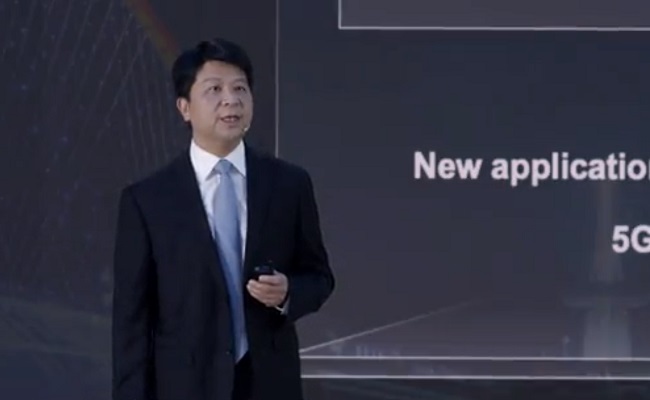
Recent decades had seen the mobile industry basically solve the problem of connecting people, he said. Now more industries are starting to experience the huge upside of faster bandwidth and lower latency, such as remote monitoring in hazardous environments.
Like electricity 100 years ago, he observed ICT is extending into every industry to boost efficiency and save resources, adding industries are going digital at a faster pace with the help of 5G, giving examples of applications being widely adopted in the mining sector in China along with ports and aircraft manufacturing globally.
Enhanced mobile broadband is the most mature feature of 5G, he said. “After talking with many industries, we found that this feature alone can meet many of their needs with only slight adaptations. Industries that adopted 5G early on have started sharing and helping duplicate successful experiences at scale.”
The next step, he said, is for Huawei to work with industry partners on applications to create additional value, by using its network, cloud, AI and device capabilities to “help our customers unleash the potential of 5G”.
Pandemic support
Guo highlighted the role mobile operators around the world have played in keeping the world connected, and helping society and industries recover from COVID-19 (coronavirus), pointing to a GSMA recommendation for authorities to temporarily release more spectrum to reduce network congestion and promoting the use of AI-powered digital applications in the fight the pandemic.
“We are fully aware that global collaboration is critical to the success in beating the virus. No matter whether it is in the medical or communications sector, Huawei will continuously support open and collaborative standards and industry organisations in their efforts to safeguard a unified global communications industry,” he said.
The company supports industry initiatives pushing 5G to become the backbone for economic recovery in some regions. He noted the value of ICT applications had been greater than ever during the pandemic. “For people confined in pandemic hotspots, a simple phone call or short video call can mean a lot.”
South Korea’s success in containing the virus, Guo said, can be attributed to its highly-developed ICT infrastructure and efficient use of technology.
The country set a record by signing-up 1 million 5G users in 69 days, he noted.
Korea’s ability to track confirmed cases using GPS and roaming data, and the government encouraging the use of mobile contact-tracing apps were crucial in helping to efficiently contain the spread of the virus at the early stages, Guo explained.


























